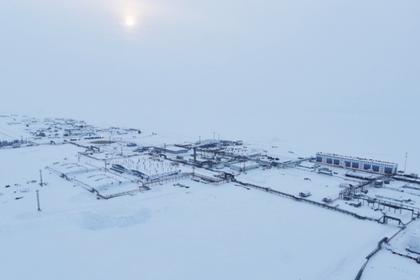БЛОКЧЕЙН ГАЗПРОМА
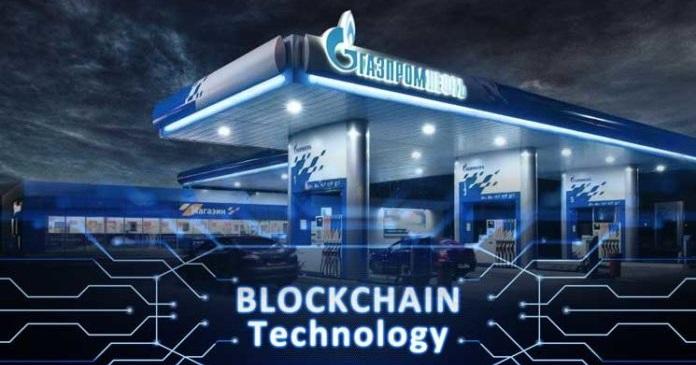
ГАЗПРОМ - Алексей Миллер проинформировал Дмитрия Медведева о работе «Газпрома» в сфере импортозамещения и внедрения цифровых технологий
3 апреля 2019 состоялась рабочая встреча Председателя Правительства Российской Федерации Дмитрия Медведева и Председателя Правления ПАО «Газпром» Алексея Миллера.
Алексей Миллер проинформировал Дмитрия Медведева о работе компании в сфере импортозамещения и внедрения цифровых технологий.
Стенограмма
Дмитрий Медведев: Алексей Борисович, мы с Вами обычно обсуждаем такие традиционные для «Газпрома» вопросы, как выполнение обязательств по поставкам газа, долги, которые формируются, так или иначе, у потребителей. Сегодня предлагаю некоторые другие вопросы обсудить, в частности тему, связанную с замещением импорта. Я как Председатель Правительства возглавляю комиссию по импортозамещению в стране. Это большая работа, которую, Вы знаете, мы ведем по всем направлениям. «Газпром» является очень крупной российской компанией, которая по импорту получала, покупала большое количество различных объектов производственного назначения. Хотел бы узнать, как эта работа в настоящий момент налажена в «Газпроме», в том числе имею в виду и цифровую составляющую.
Алексей Миллер: «Газпром» в течение многих лет системно ведет работу по импортозамещению. По итогам 2018 года объем закупки отечественных видов оборудования и материально-технических ресурсов составил 99,7% всего объема закупки. Что касается труб, мы уже не первый год демонстрируем 100-процентный объем закупки у российских производителей.
Работа по импортозамещению строится по нескольким направлениям. В первую очередь это заключение долгосрочных договоров и договоров на покупку будущей вещи, когда предприятия отечественной промышленности берут на себя обязательство серийного производства продукции в рамках программы импортозамещения, а «Газпром» гарантирует спрос на эту продукцию и в среднесрочной и долгосрочной перспективе готов ее покупать.
Формой этих долгосрочных договоров с участием Правительства являются СПИК (специальные инвестиционные контракты), когда Минпромторг генерирует весь спрос на данный вид продукции в отраслевом разрезе, нефтегазовом комплексе, плюс предоставляет субсидии промышленным предприятиям для производства продукции в рамках программы импортозамещения.
Региональный срез нашей работы основан на дорожных картах, которые мы в настоящее время подписали с 22 субъектами Федерации. Администрации регионов берут на себя обязательство представить совокупную заявку-предложение от предприятий субъекта. «Газпром» эти предложения анализирует. За последнее время в рамках этих 22 дорожных карт мы проанализировали предложения 376 предприятий. При этом провели комплексный аудит 165 предприятий. По результатам этой работы более 500 видов продукции принято к применению на объектах «Газпрома». В развитие регионального аспекта сотрудничества мы в настоящее время по 5 из 22 дорожных карт подписали трехсторонние соглашения с участием Минпромторга. Роль и место Минпромторга точно такие же, как и в СПИК: совместно подключиться в части помощи предприятиям, которые определены как возможные поставщики, и оказать помощь по линии Правительства, предоставить субсидии.
Очень важным направлением работы является локализация оборудования, которое до последнего времени не производилось в России, отечественных аналогов у нас нет. В первую очередь для «Газпрома» это оборудование в тех секторах, где мы в настоящее время начинаем работать. До последнего времени мы активно не вели деятельность по таким направлениям, как сжиженный природный газ, газопереработка и шельф. Но время идет, и мы прекрасно понимаем, что в рамках этих направлений работы в среднесрочной и долгосрочной перспективе у «Газпрома» появятся крупные проекты. Мы с нашими отечественными производителями, в первую очередь с предприятиями оборонно-промышленного комплекса, своевременно начинаем работу по локализации производства оборудования для этих секторов.
Стоит отметить отдельную работу по соглашениям с предприятиями оборонно-промышленного комплекса, в частности, предприятиями Государственной корпорации «Ростех». Здесь надо подчеркнуть огромный научно-технический потенциал, который есть у отечественной «оборонки». В рамках соглашений этот научно-технический потенциал работает на технологическое развитие газовой отрасли.
Мы традиционно в рамках ежегодного Петербургского международного газового форума проводим выставку, представляющую новое оборудование, которое отечественные производители начали выпускать в рамках программы импортозамещения. Выставка проводится в течение последних трех лет. В октябре 2018 года на этой выставке было представлено более 1500 новых образцов оборудования, которое начали производить наши предприятия в рамках программы импортозамещения. Абсолютное большинство видов этого оборудования полностью соответствует мировому технологическому уровню, а по многим позициям превосходит на одно или даже два поколения. Таким образом, происходит не просто замещение импорта, а технологическое развитие газовой отрасли, нашей промышленности в целом.
Что касается цифровизации, мы в этом направлении работаем. В частности, это касается цифровизации процесса поставок газа, внедрения в нашу работу технологии распределенных реестров. В настоящее время вместе с Газпромбанком разработан прототип технологической платформы, которая предусматривает автоматизацию процесса заключения, мониторинга и исполнения договоров. Эта система также предполагает автоматический арбитраж и автоматический расчет платежей за газ. Система абсолютно открыта для всех участников договорного процесса. Она полностью защищена от несанкционированного вмешательства и несанкционированных изменений. «Газпром» в настоящее время готов начать работу по внедрению процесса автоматизации сопровождения договорного процесса по поставкам газа. Вначале эта работа будет вестись только для крупных промышленных потребителей.
Дмитрий Медведев: То, что Вы упомянули, безусловно, в настоящий момент является очень значимым фактором развития российской промышленности — создание российских аналогов или образцов, которые превосходят иностранные аналоги, использование современных цифровых технологий. Я имею в виду и технологии Интернета вещей, и технологии, которые принято называть распределенным реестром, блокчейном. Причем речь идет об абсолютно конкретном применении современной передовой технологии, о которой сейчас много говорят и пишут, но зачастую не очень понимают, где ее можно «потрогать» и каким образом она может использоваться. В данном случае ваш пример может быть использован и в деятельности других компаний, которые так или иначе тоже к этому подступаются. Особенно в том случае, когда речь идет о большом количестве потребителей и стандартизированных условиях их обслуживания — с контролем качества, исполнением взаимных обязательств и в случае необходимости даже с применением мер ответственности. Думаю, у этой технологии неплохое будущее в нашей промышленности и в деятельности таких компаний, как «Газпром».
-----
GAZPROM'S BLOCKCHAIN

GAZPROM - Alexey Miller briefs Dmitry Medvedev on Gazprom's efforts in import substitution and digital technologies
April 3, 2019 a working meeting took place between Dmitry Medvedev, Prime Minister of the Russian Federation, and Alexey Miller, Chairman of the Gazprom Management Committee.
Alexey Miller briefed Dmitry Medvedev on the Company's efforts in the field of import substitution and the implementation of digital technologies.
Shorthand record
Dmitry Medvedev: Mr. Miller, we usually discuss matters that are within the traditional purview of Gazprom, such as the fulfillment of obligations for gas supplies and the consumer debt that eventually accumulates. I suggest that we discuss something different today, namely issues related to import substitution. As Prime Minister, I head the Russian Commission on Import Substitution. As you know, we do extensive work on all fronts. Gazprom is a very big Russian company that has imported, which is to say purchased, large amounts of various industrial products. I would like to know about the way this work is organized at Gazprom right now, including its digital component.
Alexey Miller: Gazprom has been systematically working towards import substitution for many years. In 2018, domestic equipment and materials accounted for 99.7 per cent of our total procurements. As for pipes, we have been purchasing 100 per cent of those items from Russian manufacturers for several years now.
Our import substitution efforts have several dimensions. First of all, we conclude long-term contracts and futures contracts whereby domestic enterprises assume an obligation to organize batch production as part of the import substitution program, while Gazprom guarantees demand for the resulting products and is ready to buy them in the medium and long term.
These long-term arrangements involving the Government are made in the form of SPICs (special investment contracts) wherein the Ministry of Industry and Trade generates 100 per cent of demand for a specific product in the industry, namely in the oil and gas complex, and provides subsidies for industrial enterprises to manufacture such product under the import substitution program.
The regional dimension of our work is based on roadmaps we have signed with 22 constituent entities of the Russian Federation. Regional administrations undertake an obligation to present collective offers from local enterprises. Gazprom analyzes those offers. Recently, we reviewed 376 offers from enterprises under those 22 roadmaps. We also conducted comprehensive audits at 165 enterprises. As a result, over 500 types of products have been accepted for use by Gazprom. In order to advance our regional cooperation, we have signed trilateral agreements involving the Ministry of Industry and Trade under 5 out of 22 roadmaps. The Ministry has the same role and functions as in SPICs: to jointly support the enterprises designated as potential suppliers and to provide them with governmental assistance, to subsidize them.
An essential aspect of our work is the localization of equipment that has never been produced in Russia and has no domestic counterparts. For Gazprom, it is first and foremost the equipment used in the sectors that we are currently entering. Until recently, we were not very active in such areas as liquefied natural gas, gas processing, and shelf exploration. But with the passage of time, we have come to realize that Gazprom will pursue major projects in those areas in the medium and long term. Together with our domestic producers, especially the military-industrial complex, we are initiating timely work to localize the production of equipment for these sectors.
I would like to draw your attention to the separate efforts under the agreements with the military-industrial complex, including the state-owned Rostec Corporation. Of particular note is the enormous sci-tech potential of these domestic enterprises. Thanks to the agreements, this sci-tech potential contributes to the technological development of the gas sector.
During the annual St. Petersburg International Gas Forums, we traditionally host exhibitions showcasing new equipment the production of which has been launched by domestic manufacturers under the import substitution program. We have hosted such exhibitions in each of the past three years. In October 2018, we presented over 1,500 new prototypes of equipment delivered by Russian producers as part of the import substitution program. The overwhelming majority of those items fully meets the global technological standards and is one or even two generations ahead of them in many respects. So, we are witnessing not just import substitution but also technological development of the gas sector and our industry at large.
As for digitalization, we are working towards it, specifically towards the digitalization of the gas supply process and the implementation of the distributed ledger technology in our operations. Together with Gazprombank, we have developed a prototype of a technological platform to automate the process of concluding, monitoring and executing contracts. This system also provides for automated arbitrage and calculation of payments for gas. The system is completely open to all members of the contracting process. It is fully protected from tampering and unauthorized changes. Gazprom is currently ready to start implementing the process for automated support of contracting procedures regarding gas supplies. At the initial stage, this work will only concern major industrial consumers.
Dmitry Medvedev: The efforts you have mentioned are undoubtedly crucial to the development of the Russian industry, whether it is the creation of domestic equivalents or prototypes that surpass their foreign counterparts, or the use of modern digital technologies. I'm also referring to the Internet of things and the so-called distributed ledger technology, or blockchain. We're talking about completely specific applications of an advanced and cutting-edge technology that has been heavily discussed but often misunderstood in terms of its practical applicability and use. In this case, your example could be followed by other companies that are approaching this technology in one way or another. Especially when it comes to a large pool of consumers and standardized services with quality control, mutual obligations and, if necessary, accountability measures. I believe that this technology has a promising future in our industry and in the activities of companies like Gazprom.
-----
Earlier:
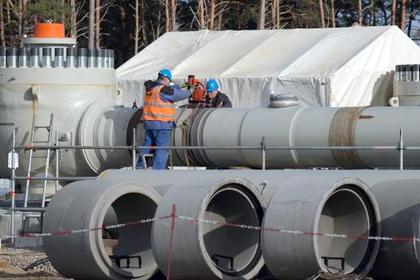
2019, April, 5, 10:35:00
NORD STREAM 2 RULES
The EU section of Russia's planned 55 Bcm/year Nord Stream 2 gas link to Germany could face tariff regulation from March at the latest after the European Parliament signed off changes to the EU's gas directive on Thursday.
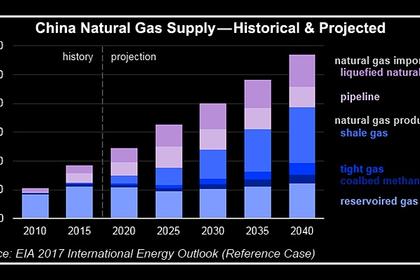
2019, April, 5, 10:25:00
CHINA NEED GAS
China’s LNG imports last year were about 54 million tonnes. CNPC accounts for about 60 percent of China’s overall gas imports and 70 percent of domestic production, Ling said. “LNG price will become one of the decisive factors for the amount of LNG imports,” he also said in his presentation.
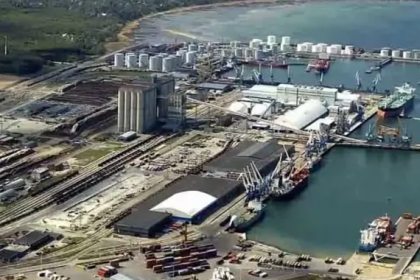
2019, April, 1, 11:00:00
RUSSIA'S GAZPROM LNG
Russian gas producers Gazprom and RusGazDobycha will start a major gas processing and liquefaction project near the Baltic Sea port of Ust-Luga, Gazprom said on Friday.
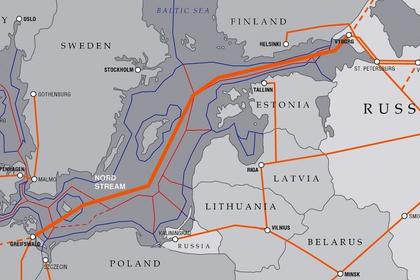
2019, March, 29, 11:40:00
THE THIRD NORD STREAM 2
The Danish Energy Agency has asked the Gazprom-owned developer of the planned 55 Bcm/year Nord Stream 2 gas pipeline from Russia to Germany to consider a third route option, a spokesman for the agency said
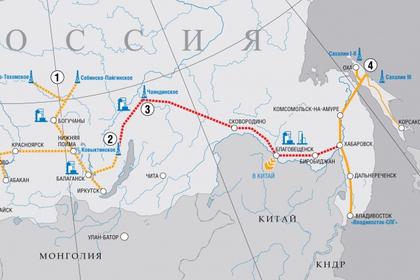
2019, March, 25, 11:35:00
POWER OF SIBERIA STARTUP
The Power of Siberia natural gas pipeline from Russia to China is on track and gas supply is expected to commence by December this year, a senior executive at state-run PetroChina, China's biggest gas importer and producer, said
All Publications »
Tags:
GAZPROM,
BLOCKCHAIN,
ГАЗПРОМ,
БЛОКЧЕЙН







